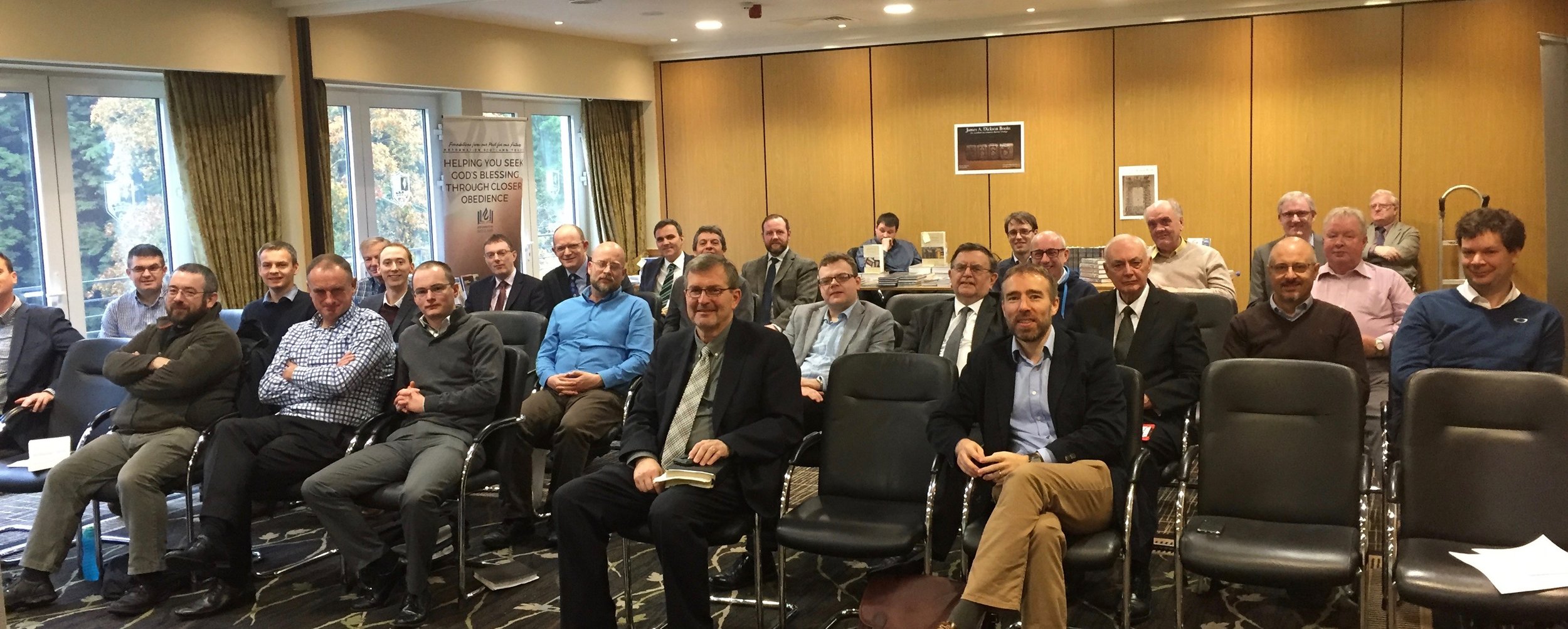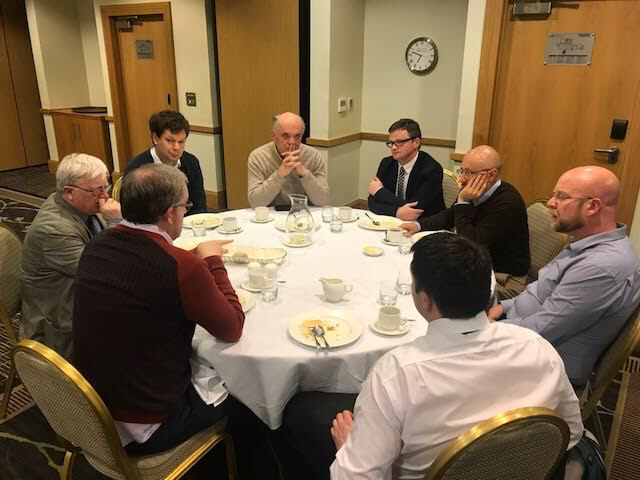Last month Stephen attended a new gathering of Scottish ministers called the Puritan Reformed Fellowship. The conference was attended by like-minded men from the RPCS, Free Church of Scotland, Free Church Continuing, International Presbyterian Church and Associated Presbyterian Churches, as well as by one brother from the Fellowship of Independent Evangelical Churches (FIEC).
The conference was held in the Macdonald Crutherland House Hotel in East Kilbride. It was a good, central location, and with a number of men coming from the Inverness area and the Western Isles, relatively close to Stranraer!
Eating and talking together was one of the highlights of the conference
Proceedings began on a Monday night a talk by Malcolm Watts (Emmanuel Church Salisbury) on 'What is a Reformed Church?' (he has a book by the same title). The next morning he spoke on 'Five Solas of the Reformation', before an interesting lecture on the Lord's Supper by Malcolm Maclean (Greyfriars Free Church, Inverness). Dr Maclean reminded us that Reformers like Calvin thought the Lord's Supper should be held far more frequently than it is today - and questioned the helpfulness of the traditional Highland Communion Season in this regard.
In the afternoon Joel Beeke (Heritage Reformed Congregation, Grand Rapids), who had just arrived from America, spoke on 'Puritan Worship' and 'Puritan Preaching'. He spoke twice again that evening at a Scottish Reformation Society meeting that was open to the public.
The next morning, Dr Beeke gave his final talk on 'Puritan Evangelism', before Dr Donald John Maclean (an elder in Cambridge Presbyterian Church and author of James Durham and the Gospel Offer in its Seventeenth Century Context) spoke about the life of Durham, a Covenanter minister and author who died at 36. Dr Maclean challenged the divided Presbyterian denominations in Scotland to unity:
It's at this point that we have fallen furthest from our Reformed heritage. Durham simply would not recognise, could not comprehend, the multiplicity of orthodox Westminster Confession, Presbyterian denominations. He could not understand three psalm singing churches in a small village, struggling to support ministers, while towns with tens of thousands of people have no basic Reformed witness. He would quite simply say that we are, taken as a whole, in a state of sinful division
Perhaps by God's grace this conference will be a first step towards healing these divisions and changing the Confessionally Reformed church scene in Scotland.




